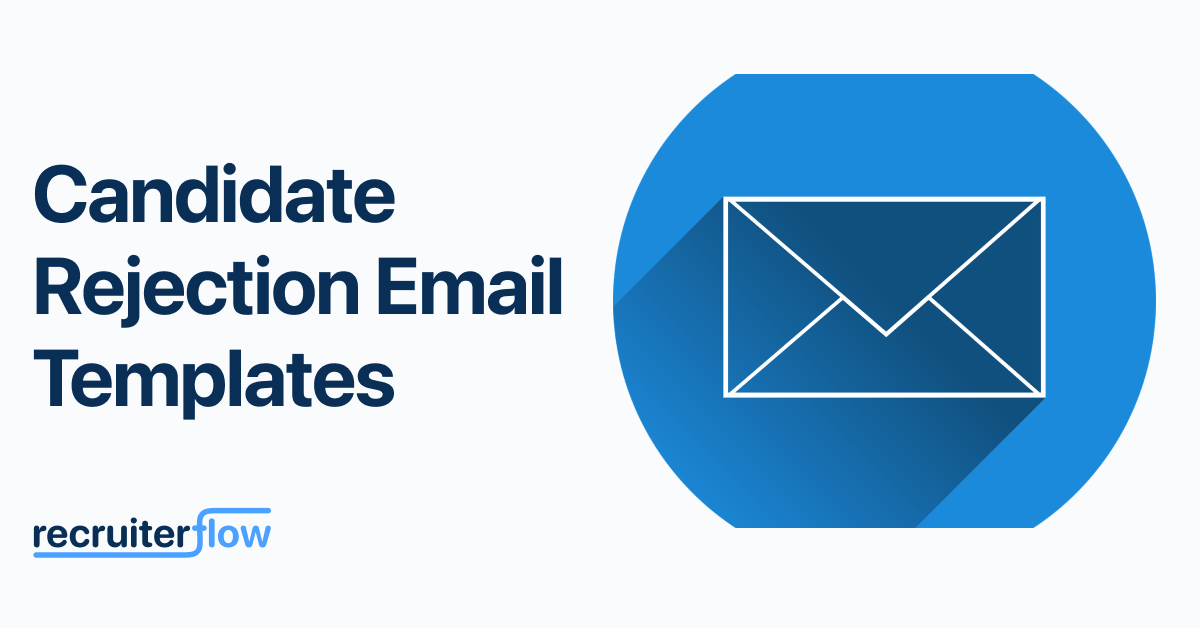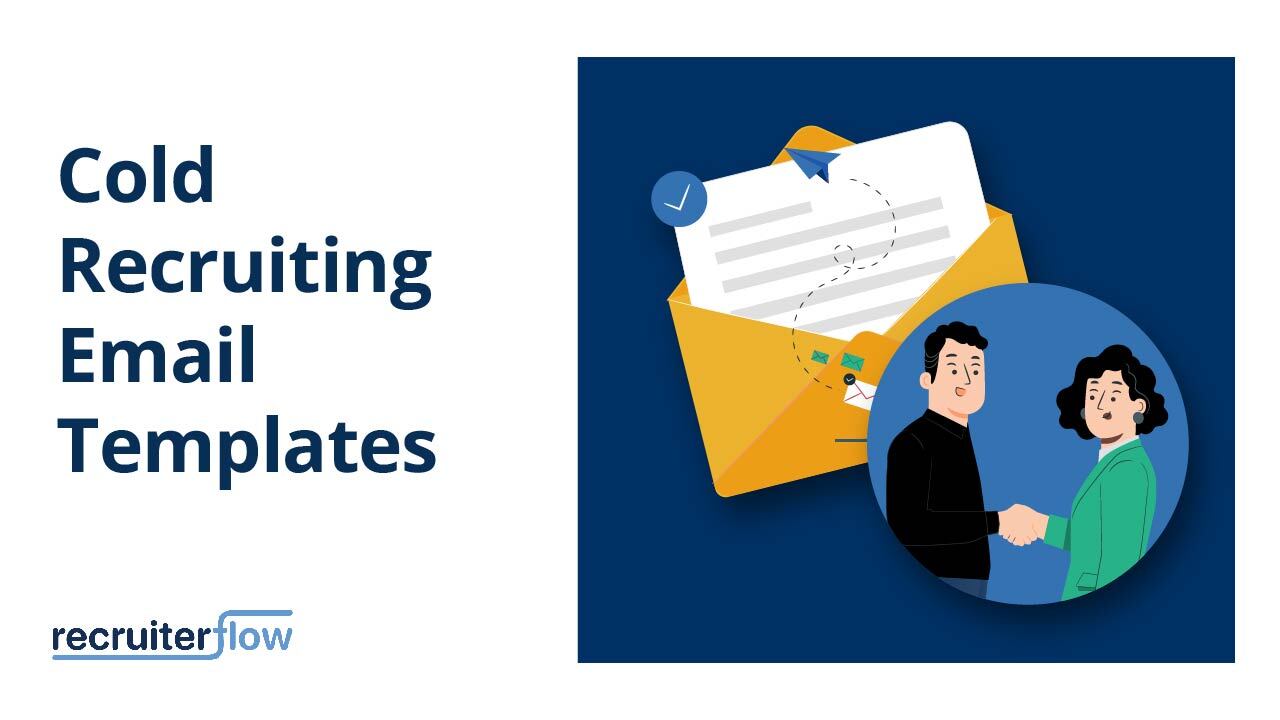
Candidate Rejection Email Templates for Recruiters
“We’ll get back to you!’ How many times have you said this to a candidate as a recruiter or hiring manager instead of sending a candidate rejection email? A hundred times, or maybe more, right? But how many times did you get back with the bad news? One, two, or maybe never.
Candidate rejection email often takes a backseat to the more favorable tasks of interviewing and onboarding. However, it’s time you recognize the significance of this simple yet crucial communication. Rejecting a candidate with professionalism and empathy strengthens talent relationships for future hiring endeavors.
With recruiting automation, you can efficiently manage candidate rejection emails through automated email campaigns. This allows you to reach out to a vast pool of applicants swiftly while maintaining a personalized touch.
Read this blog to learn more about candidate rejection emails and get free candidate rejection email templates at the end of the blog.
What is a Candidate Rejection Email?
Candidate rejection emails are used by recruiters and hiring managers to notify candidates who do not advance to the next phase of the hiring process. Essential elements of this email are – thanking the candidate for appearing for the interview process, the reason for not getting selected, or a few feedback points, and lastly, wishing them good luck in their future endeavors.

How to write the perfect candidate rejection email
Now that we know the importance of writing a post-interview rejection letter. Let us look into how to write a rejection email. Here are some tips that will help you create the perfect candidate rejection email.
1. Always Thank the Candidates for Their Time and Efforts
Whether you want to proceed with a candidate for further hiring rounds or not, making them feel valued for their time and effort is the least you can do. Doing this makes your recruiting process more transparent, and can even serve as your differentiator among other recruiters.
A bad example: Thank you for applying to the position of “job role” at “company name”.
A good example: We really appreciate that you took the time to consider us.
2. Personalize Your Candidate Rejection Email
Use the applicant’s first name and the job role they applied for. If possible, write something complimentary about a candidate’s specific skill or something that stood out on their resume. By acknowledging their strengths, you can boost candidates’ morale and let them know their worth before they doubt their skills.
A bad example: We were impressed with your experience. Thanks for applying!
A good example: The team at {company name} was really impressed with your {specific skill} and how you leveraged it to do {specific achievement}.
3. Give Feedback or a Reason For Being Rejected
It’s tough for a recruiter to take time and share feedback with every candidate, but you can keep the feedback short and crisp. Apart from their interview, here are a few feedback points you can give to the candidates:
- How they can improve their resume or highlight certain aspects more.
- Modifications in their application or submitted assignment
- How they can enhance their subject matter knowledge with a certain course
Apart from giving feedback, always remember to highlight the reason for rejection for the applied role.
A bad example: Unfortunately, you have been rejected from the [hiring stage] for the position of [job role] at [company name].
A good example: We hope you don’t mind if we reach out to you in the future. To help you better understand why you didn’t progress to the next stage, here are some feedback pointers we collected from your interview round.
4. Wish them Good Luck
We’d like to emphasize once again that not getting selected at one company does not mean that the candidate is bad, it simply means that the job was not fit for the candidate. End the email with a positive note by wishing them the best of luck in their future endeavors.
A bad example: Good luck!
A good example: Good luck! We encourage you to apply again with us for another job role that interests you.
5 Automated Rejection Email Templates You Can Use Right Away
There’s a lot of time and effort a recruiter has to invest in writing a single rejection email along with their everyday mundane (but crucial) tasks. This is where a recruiting automation platform can help you accelerate your communication with candidates by allowing you to set up automated email campaigns. So you can easily create workflows based on different triggers, filters, and set actions.
For example, if you want to set up a candidate disqualification workflow, all you need to do is select the trigger i.e. when a candidate is disqualified, select the stage and disqualification reason, add filters, and send an automated email.
To help you put together your candidate rejection email templates, we’ve put together a list of some sample rejection letters that you can use right away and tweak if required.
What is an example of a rejection email to a candidate: 5 Free Candidate Rejection Email Templates
To make your work easier, below are a few easily customizable and free-to-use candidate rejection email templates for every step of your hiring process.
Job Rejection Email Template 1
Subject: Interview for <Name of the Role>
Body:
Hi <Name of the Candidate>,
Thank you for your application for the [insert your job position title] at ABC company. We highly appreciate your interest in joining our company and we want to thank you for the time and efforts you invested during the entire interview process.
Unfortunately, we won’t be able to take this forward. Though it was great to interview you, we are looking for a candidate with more expertise in this role.
We wish you the best and hope you’ll find the right job soon!
Thank you,
<Name of Hiring Manager/Recruiter>
Job Rejection Email Template 2
Subject: Interview for <Name of the Role>
Body:
Dear <Candidate Name>,
We’d like to thank you for taking the time to go through the process. We are glad that you took interest in the role and our company.
I am writing to let you know that we couldn’t go ahead with your application for this role.
We do highly appreciate you taking the time to interview with us and encourage you to apply for other openings at the company in the future.
Sincerely,
<Name of Hiring Manager/Recruiter>
Job Rejection Email Template 3: Candidate rejection email after interview
Subject: Thank you for applying for the role of <Name of the role>
Body:
Dear <Candidate’s Name>,
Thank you so much for your interest in the <Name of the role> role here at ABC Company, and for taking out the time to interview with us.
While we were quite impressed by your interviews and skillsets, we had to go ahead with another candidate with more experience in the relevant field. However, we’d encourage you to apply for other positions of your interest and expertise in the coming months.
Thank you again for the time you invested in applying and interviewing for this role. We wish you the best of luck in your job search and all future endeavors.
Sincerely,
<Name of Hiring Manager/Recruiter>
Job Rejection Email Template 4
Subject: Your Application For <Name of the role>
Body:
Dear <Candidate’s Name>,
It was a pleasure to e-meet you at the interview last week. We’d like to thank you for your patience, time, and effort invested during the entire interview process.
We were impressed with your experience, skills, and approach, but due to the more relevant skill set of another candidate, we have chosen to go with them. Though your confidence and communication skills are great, you can go for some courses related to your field of interest to improve your knowledge of the same.
We want to bring to your notice that the interview panel thoroughly enjoyed your presentation and valued your insights. I am sure that your knowledge, experience, and qualifications will help you find a suitable position to achieve your goals.
I wish you well in your job search and your future career.
Sincerely,
<Name of recruiter or hiring manager>
Job Rejection Email Template 5
Subject: Thank You For Applying <Name of the Role>
Body:
Hi <Name of the Candidate>,
Thank you so much for your interest in the <Name of the role> with XYZ Company. We appreciate you taking the time to interview our team.
While we were impressed with your skills, particularly in [add specific skills you were impressed by] we have chosen to proceed with another candidate who has more leadership experience.
Again, we appreciate your time, and we wish you the best of luck in your career endeavors.
Sincerely,
<Name of the hiring manager/recruiter>
<Your email signature>
Also, check Recruiting Email Templates for Recruiters
Benefits of sending a candidate rejection email
What is worse than receiving a job rejection email? Not receiving an email at all! A candidate spends hours preparing and going through the rounds of the interview process. The least that they deserve is to be informed about their results. It saves the candidate from endless overthinking; they can move on and apply for other jobs with an open mind. You can also save time by using cold email tools to automate the process.
Now, let us jump into the 3 reasons why you should always write a post-interview rejection letter:
1. Impacts Your Company Image
It is no secret that unhappy candidates spread their resentment more quickly and to more people than the ones who are satisfied. This has a high chance of hampering the name of your company, which might make you lose out on potential candidates as well. Therefore, it is better to keep your candidates informed.
2. Relief For The Candidate (from the wait, of course)
The candidate got rejected, but waiting and overthinking whether they got selected or not makes the entire interview experience worse. Contrary to popular belief, a candidate’s experience does not end when you decide not to hire them. Those candidates you rejected for this particular position may be fit for a future opening.
3. A Pool Of Candidates For Future
You should never cut all ties with someone who is rejected by you today only to find the best candidate tomorrow. If you build a bridge now that can be crossed later, they may have more relevant experiences, be better trained, and be a better fit for another position a year from now.
Also, read our blog on the candidate experience survey.
Conclusion
When candidates receive rejection letters, they are naturally disappointed, but what they shouldn’t feel is devalued or diminished. It won’t take more than a few minutes to write a rejection email with a reason or a few feedback points. Doing this will make delivering bad news a little easier. So now you have the points to remember and samples while writing the email, you can utilize this knowledge in your next rejection email.
You can also sign up for a 14-day free trial of Recruiterflow to check out how you can use automated email sequences to nurture relationships with candidates and clients.



Sagrika Jain